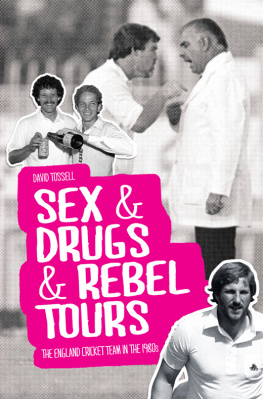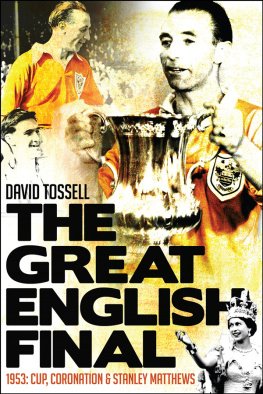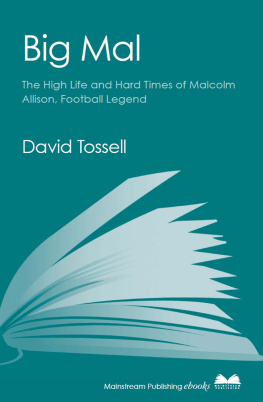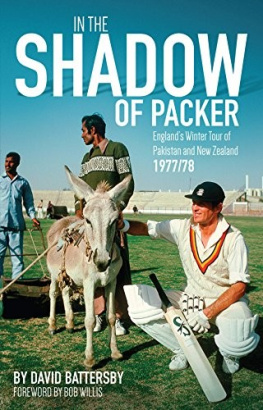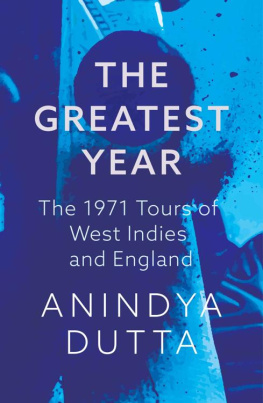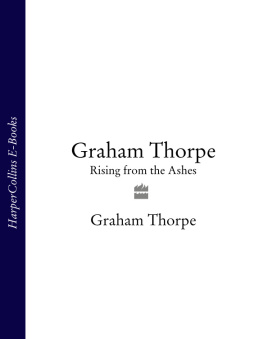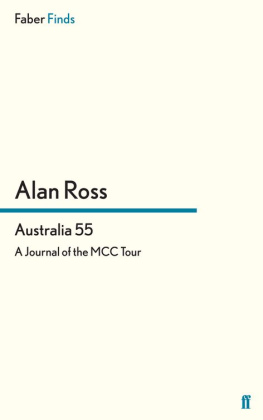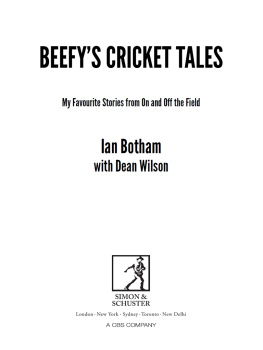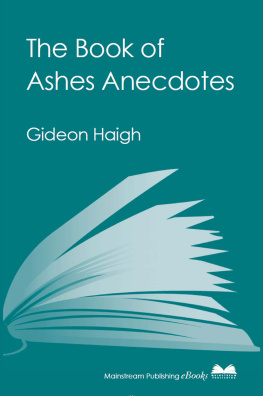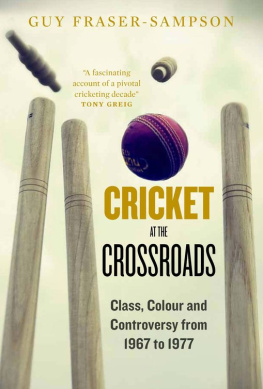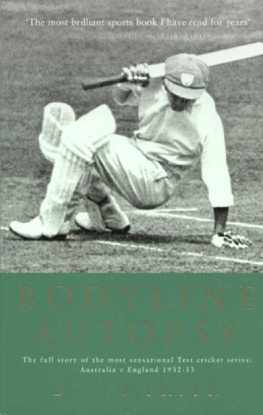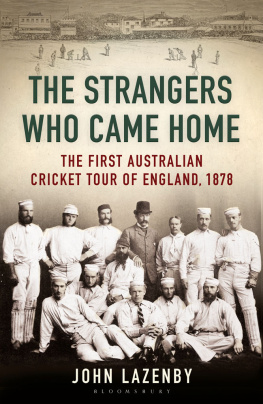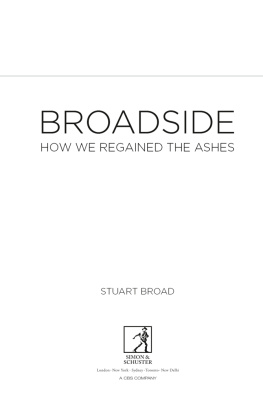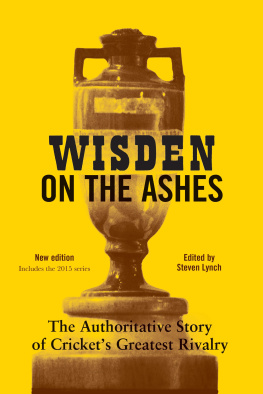First published by Pitch Publishing, 2015
Pitch Publishing
A2 Yeoman Gate
Yeoman Way
Durrington
BN13 3QZ
www.pitchpublishing.co.uk
David Tossell, 2015
All rights reserved under Internationaland Pan-American Copyright Conventions. By payment of the required fees, you have been grantedthe non-exclusive, non-transferable right to access and read the text of this e-book on-screen. No partof this text may be reproduced, transmitted, downloaded, decompiled, reverse-engineered, or storedin or introduced into any information storage and retrieval system, in any form or by any means, whether electronic or mechanical, now known or hereinafter invented, without the express writtenpermission of the Publisher.
A CIP catalogue record is available for this book from the British Library
Print ISBN 978 178531-011-9
eBook ISBN: 978-1-78531-064-5
--
Ebook Conversion by www.eBookPartnership.com
Contents
ACKNOWLEDGEMENTS
I BEGAN the 1980s as a nineteen-year-old journalism student and finished them as a father and a member of a national newspaper sports desk, where much of my time in the final two years of the decade seemed to be devoted to designing pages and writing headlines that reflected the latest disaster to befall the England cricket team.
In between I watched and listened to a lot of Test cricket, but only when I began researching this book did I realise how much of the detail of those years I had forgotten. I am grateful, therefore, to the many players, authors and correspondents whose books, newspaper reports and magazine articles have been so important to this project. I have endeavoured to acknowledge as many as possible in this books bibliography, but apologise now for any omissions. I must commend all those fans who have lovingly made so many of the decades key cricketing moments easily available on YouTube.
Special thanks are due to the England players of the era to whom I have spoken during my research for this and other books: Paul Allott, Bill Athey, Rob Bailey, Roland Butcher, David Capel, Tim Curtis, Nick Cook, Paul Downton, Richard Ellison, John Emburey, Graeme Fowler, David Gower, Ian Greig, Alan Knott, John Lever, Pat Pocock, Derek Pringle, Jack Richards, Tim Robinson, Gladstone Small and Bob Willis.
Laura Wagg at Press Association has been as helpful as ever in sourcing photography, while others who have offered valuable assistance in a variety of ways include Chris Kelly, Nicky Higgs, Gavin Megaw, James Motley, Daniel Norcross, Nick Pike, Rob Pritchard, Rob Steen and Andrew Walpole. Paul Camillin and Jane Camillin at Pitch Publishing continue to offer fantastic support to their authors and Duncan Olner did his usual terrific job on the jacket design. Thanks also to Dean Rockett for his diligent editing.
I am grateful to the Professional Cricketers Association for agreeing that royalties from this book should go to its Benevolent Fund (registered charity number: 1120088). The fund is part of the PCAs commitment to supporting current and former players and their families in times of hardship or medical need; and to helping cricketers readjust to life beyond the sport. The Benevolent Fund can be found at www.thepca.co.uk/benevolent_fund and via Twitter at @PCABenevolent.
As always, final mention is reserved for my family. I have long since given up expecting that my daughters, Amy, Sarah, Laura and Karis, will ever understand their fathers love of cricket, while my wife Sara has far too many of her evenings interrupted by my tapping away on the laptop. Collectively, they are the middle order that holds together the innings of my life.
INTRODUCTION
We been broken down
To the lowest turn
And been on the bottom line
Sure aint no fun
The Only Way Is Up, written by George Jackson and Johnny Henderson, performed in 1988 by Yazz and the Plastic Population
S UNDAY 7 August 1988 was shaping up as one of the better days among the England cricket teams chaotic narrative of the 1980s. It was, after all, a rest day. No further punishment could be administered by the unforgiving bats of opposing batsmen; no blood spilt or brains scrambled by the assassins who masqueraded as bowlers.
The West Indies, who seemed to have spent most of the decade beating up their current hosts, had gone to bed the previous night knowing they needed only another 156 runs on Monday to wrap up a 4-0 victory, their openers having already put an untroubled 71 on the board. The fact that England had drawn the first match of the series meant they would at least avoid the 5-0 humiliation of their last two encounters with the undisputed champions of Test cricket. Yet this summer, with its desultory weather and even more miserable performance, had in some ways become an even greater debacle. The morale and reputation of English cricket has seldom been as severely bruised as it was during 1988, West Indian observer Tony Cozier would comment in the following years Wisden.
While that mornings news pages triumphed Prince Andrews return from naval duties in Singapore to be with his wife Sarah as she entered the final stages of her first pregnancy, national pride was in short supply within the sports sections. Killing time and filling column inches between the dissection of the England football teams hapless efforts in the European Championship finals and the start of the Football Leagues centenary season, cricket writers strained to find new angles on the shambles unfolding before them. On this particular day their focus was the finger Graham Gooch had injured in the field, forcing him to miss the last rites of the series and leaving Derek Pringle, temporarily, as his countrys fifth captain of the season.
It had been bewildering enough that a group of selectors who seemed to believe their performance was judged by the quantity of their nominations had chosen twenty-three players to face the West Indies. The fact that four skippers had been appointed in five games was downright embarrassing. The third of them, Chris Cowdrey, had been such an unexpected choice that he turned up at Headingley for the pinnacle of his career and was refused entry by a gatekeeper who had no idea who he was. The selectors would quickly forget about him too.
Its doubtful that the men picking the England team were big Radio 1 listeners. Theyd have been no more likely to locate it on the dial than to chance upon a combination capable of beating the West Indies. The closest they would have got to pop music that day was if theyd tuned in to Radio 4s Desert Island Discs, where Sue Lawley was interviewing the outspoken Northern Irish politician, the Rev. Ian Paisley. But for much of the younger generation, Sundays were defined by the announcement of the new chart positions. Just before 7pm Bruno Brookes, sitting in his west London studio, told the country that it had a new number one record; a high-tempo dance number performed by Yazz and the Plastic Population. The Only Way Is Up seemed to have been released specifically to mock English cricket; a taunt rather than a statement of optimism. Its singer was even half-West Indian, for heavens sake.
Weve been broken down, the song began. Mike Gatting, his nose smashed so thoroughly by Malcolm Marshall in 1986 that a piece of bone was embedded in the ball, could attest to that. So could Andy Lloyd, his one appearance as an England batsman ended by a Marshall bouncer to the head; or Paul Terry, his arm fractured by Winston Davis.

